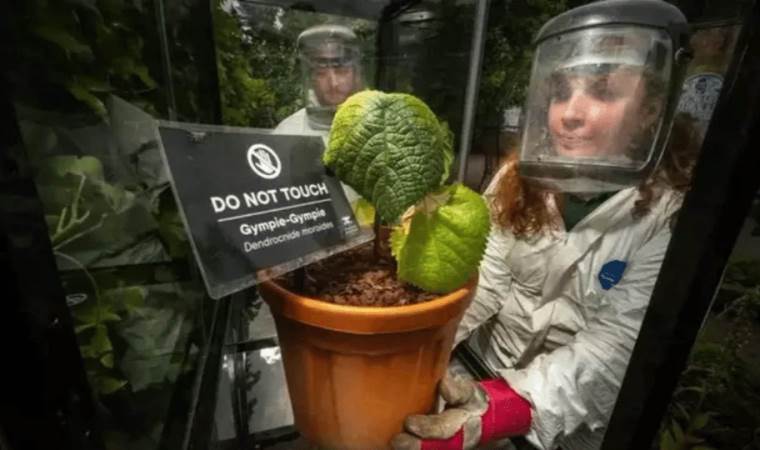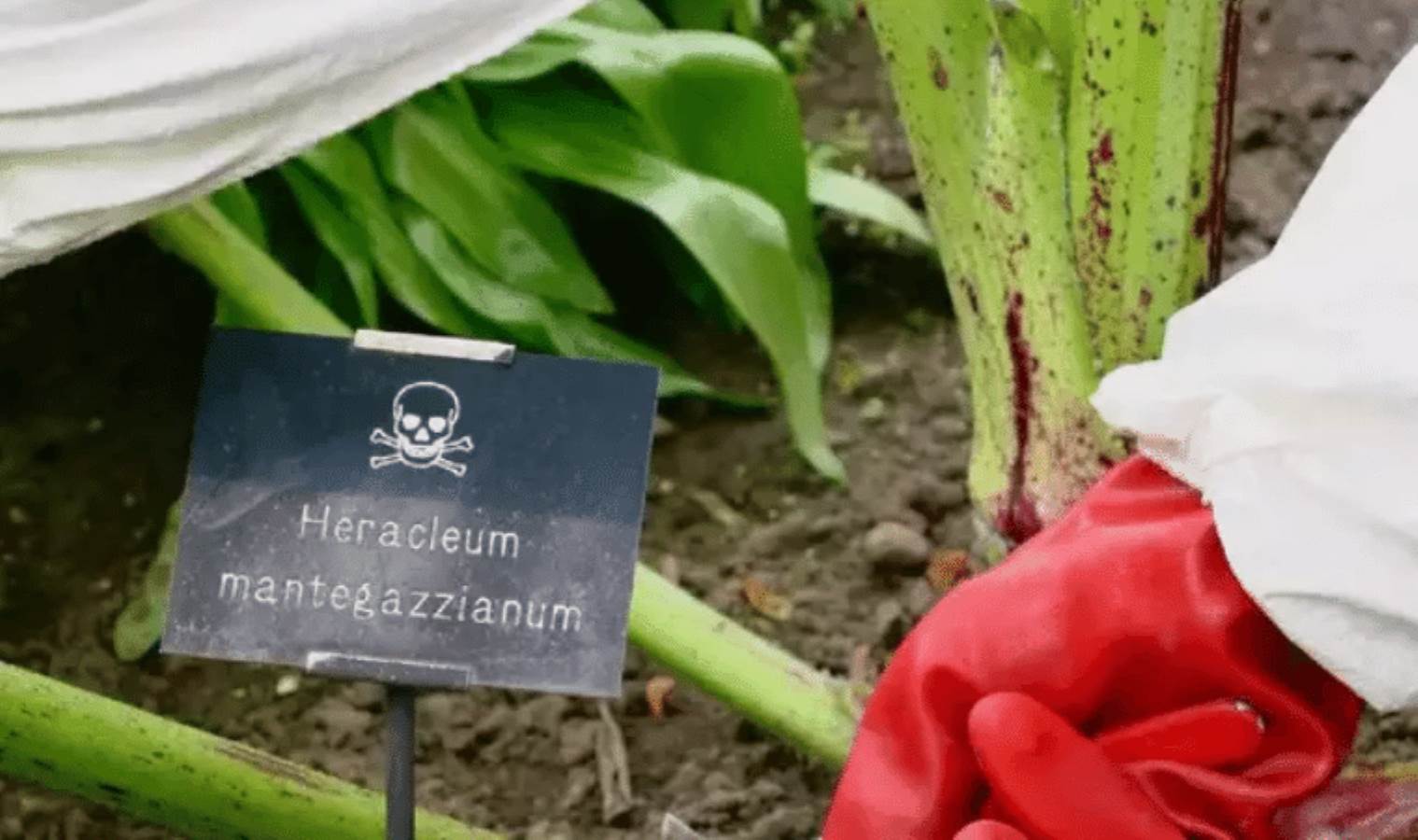Dangerous plant sparks 'suicidal thoughts'
The "most dangerous plant in the world," notorious for inducing suicidal thoughts, has arrived in the UK.

Known as the Gympie-Gympie plant, it typically inhabits Australia's and Indonesia's rainforests, possessing a sting so potent it has been likened to "being electrocuted and set on fire simultaneously."
Adding to its peril, it reportedly inflicts such excruciating pain that it can prompt "suicidal thoughts." This botanical menace is commonly housed in botanical gardens, but it is now securely guarded within Alnwick Garden's Poison Garden in Northumbria, UK, inaccessible to the public. Its notorious reputation traces back to 1866 when a road surveyor's horse suffered a sting, descending into madness and perishing just two hours later.

There is even a documented case of the plant triggering suicide, as a man fatally shot himself after encountering the shrub.
According to the lead tour guide at the Poison Garden, the plant boasts "tiny needles" along its edges that deliver searing sensations to victims.
Its sting induces debilitating pain for 20-30 minutes, with residual agony persisting for months. Described as akin to "being electrocuted and set ablaze simultaneously," even a slight brush against it can cause intense suffering.
This singular plant can prompt red rashes, swelling limbs, and sleeplessness due to unbearable discomfort. Despite these alarming effects, experts deemed it fit for display at Alnwick, home to approximately 100 toxic plants.
Part of the expansive Alnwick Garden is the brainchild of Jane Percy, the Duchess of Northumberland, who inherited her title unexpectedly upon her husband's brother's passing.
With this unexpected honor came the sprawling Alnwick Castle, recognizable to many from the Harry Potter films. Tasked by her husband to revitalize the gardens, Percy embarked on a mission to cultivate intrigue, particularly among children.
Percy explained to Smithsonian Magazine, which dubbed the garden the "world's deadliest," "I think he thought, 'That will keep her quiet, she’ll just plant a few roses and that’ll be it.'"
"I thought, 'This is a way to interest children,'" she continued.
"Children don’t care that aspirin comes from a bark of a tree. What’s really interesting is to know how a plant kills you, and how the patient dies, and what you feel like before you die." Percy emphasized, "What’s extraordinary about the plants is that it’s the most common ones that people don’t know are killers."
